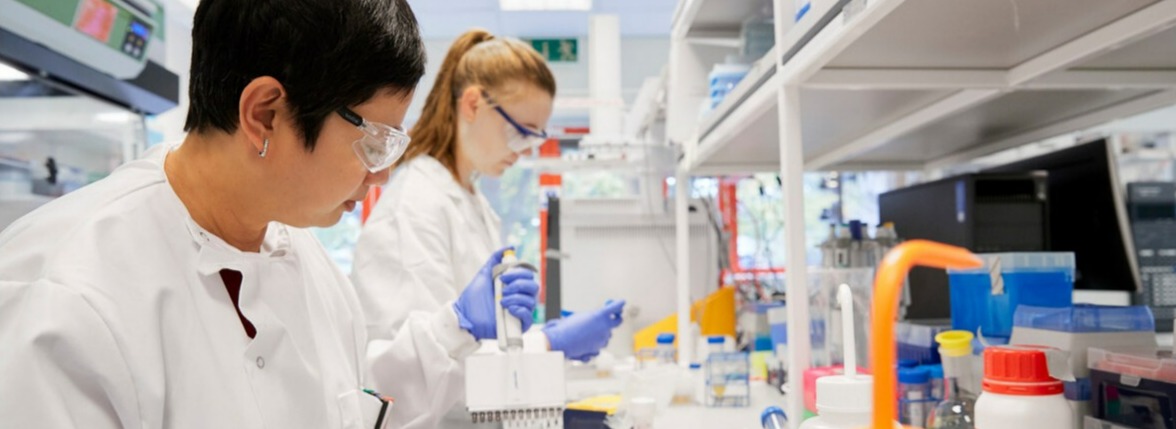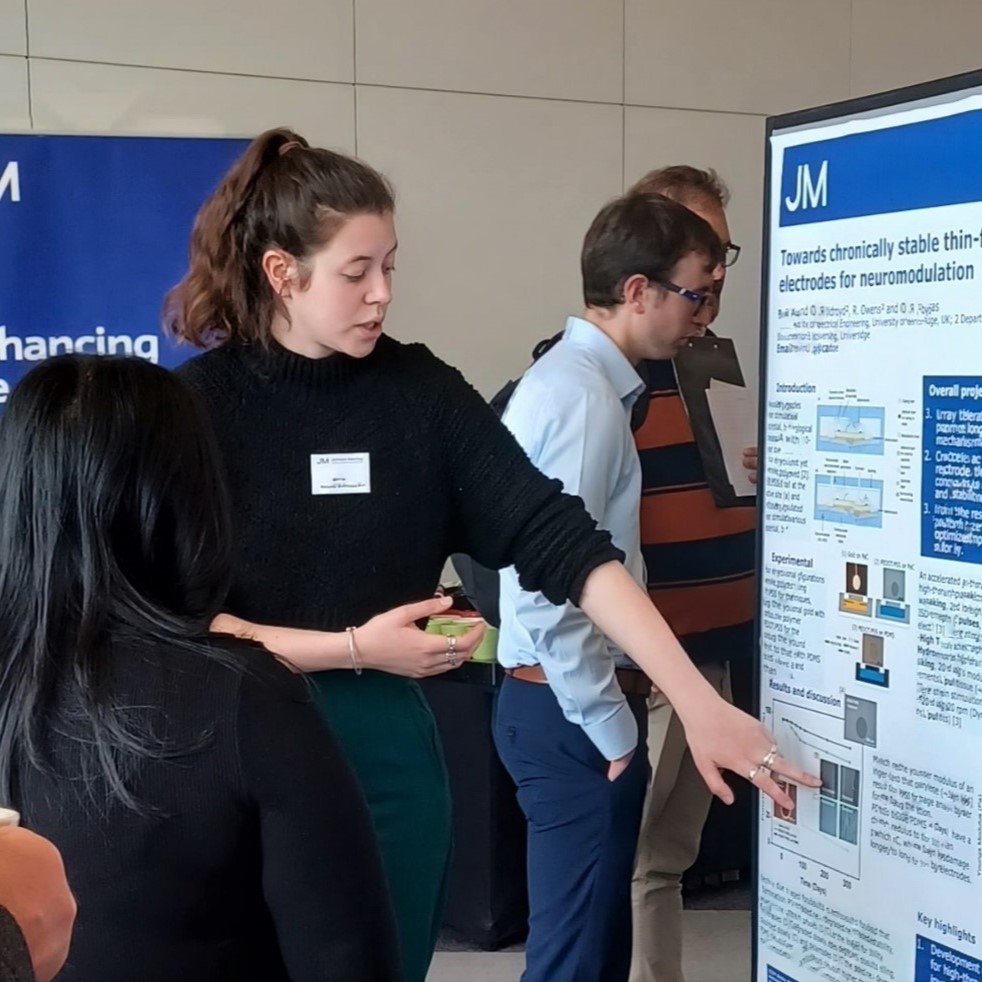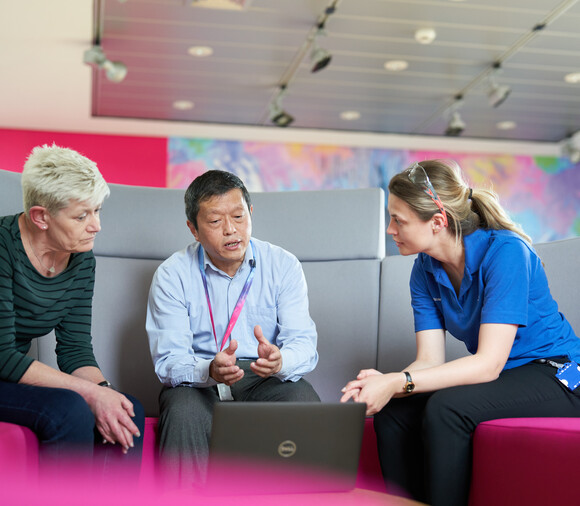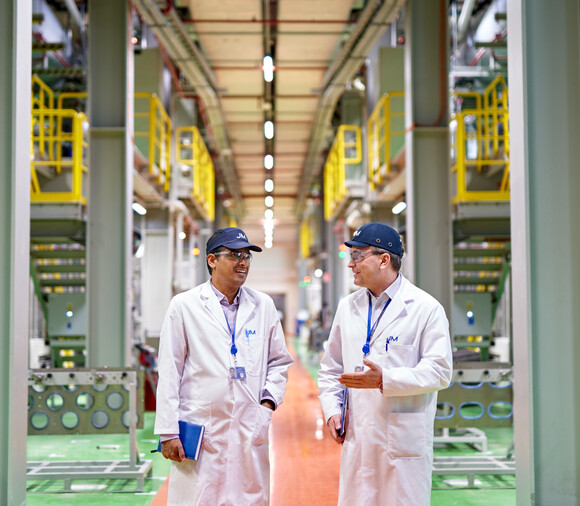Collaboration

Collaboration is an important element of innovation. While we are experts in what we do and we collaborate internally across scientific disciplines and business areas, we recognise that we can’t do it all alone.
To deliver the most effective solutions to global sustainability challenges, we need to: stay at the cutting-edge of science and research, diversify our approach to innovation and combine expertise across the value chain.
Interested in collaborating with us?
Staying at the cutting edge of science and research

Academia
We work closely with academia at the forefront of new research. JM sponsors many PhD students every year in disciplines ranging from state-of-the-art materials characterisation to process engineering. These projects provide JM with insight into fundamental scientific advances, and the universities with an understanding of how their research can be applied.
JM PGM Award Scheme
Platinum group metals (PGMs) are essential components of many future sustainable technologies, and we understand that the price of PGMs can present a barrier to beginning or continuing research. We invite academic and research groups to apply for research-quantities of PGM, which can be used in any field to further their understanding and application.
Johnson Matthey Pgm Award Scheme
Consortium projects
We are a proud participant in many consortium R&D projects from the EU, UK and the USA, with over 50 live projects. These programmes enable innovative science to be developed through early collaboration, while sharing risk and working towards a common goal.
Examples of some of our funded projects include:
- IMMORTAL: developing high performance fuel cell components for heavy duty trucks, in collaboration with Bosch, FPT Industrial, AVL, CNRS Montpellier, IMTEK and Pretexo. Funded by the EU's Fuel Cells and Hydrogen Joint Undertaking.
- REMEDY: investigating and implementing a catalytic oxidation technology for the abatement of methane from underground coal mine ventilation air methane sources, in partnership with CONSOL Energy and Oak Ridge National Laboratory. Funded by the US Department of Energy Advanced Research Projects Agency-Energy Program.
- Flue2Chem: building a UK value chain in converting industrial waste gases into sustainable chemicals and materials for consumer products, in collaboration with Unilever, Tatam Reckitt Benckiser, P&G and others. Funded by the UK Research and Innovation (UKRI) Transforming Foundation Industries Challenge.
Diversifying our innovation approach

The sustainability challenges the world faces are complex, and we recognise that diverse approaches are needed to determine the most effective and commercially viable solutions.
Through our innovation hub, JM partners with leading incubators and accelerators in key innovation ecosystems across the globe. Through these partnerships we gain access to future technologies and a network of partners to support their commercialisation. and incubator ecosystems in innovation and entrepreneurial hotspots across the globe, to develop future technologies in our areas of interest.
Examples of ecosystems we are engaged in include:
- Environmental Sustainability Innovation Lab (ESIL): a platform for establishing breakthrough sustainable solutions by connecting industry with Israeli tech entrepreneurs and start-ups. Cofounded by JM, Bazan and EDF Renewables.
- Greentown Labs: the largest cleantech start-up incubator in North America, based in Boston and Houston.. As a Terrawatt partner, JM engages with start-ups working on technologies that are catalysing the net zero transitio ndriving the clean energy transition.
- The Carbon to Value Initiative: a unique accelerator programme, commercialising technologies that capture and convert carbon dioxide into valuable end products.
Combining expertise across the value chain

Partners and customers
To ensure we deliver a truly sustainable technology from raw material sourcing, to production, use and end-of-life recycling, we work with suppliers, partners and customers across the value chain. We combine expertise with our other industry leaders, both upstream and downstream, through collaborative projects and partnerships.
Examples of some of our exciting customer projects and partnerships include:
- Plug Power: long-term strategic partnership with Plug Power to accelerate the green hydrogen economy with fuel cell and electrolysers.
- H2H Saltend: one of the UK’s largest low carbon hydrogen projects. In collaboration with Equinor and Linde Engineering.
- DG Fuels SAF plant: the world's largest Fischer Tropsch sustainable aviation fuel (SAF) plant, producing SAF from waste biomass. In collaboration with bp and DG Fuels.
- Shell e-methane collaboration: jointly completed a technical evaluation and de-risking study confirming our e-methane technology is ready for scalable deployment, supported by JM’s proven methanation expertise.
Industry councils
We understand the technologies needed to enable the global transitions happening in our markets. As such, we are active members of industry councils and trade associations driving change to a more sustainable future.
- Hydrogen Council: developing the global hydrogen economy
- Hydrogen Europe: promoting hydrogen as an enabler of a zero-emission society
- Association for Emissions Control and Climate: representing European companies making emission control technologies for engine exhaust
- International Platinum Group Metals Association: representing the global platinum group metal (PGM) industry and providing life cycle assessment data for PGMs
- Chemical Industries Association: representing chemical and pharmaceutical businesses throughout the UK
- Aldersgate Group: championing a competitive and environmentally sustainable economy in the UK
- World Economic Forum: bringing together leaders in politics, business, and culture to shape global agendas, including solving sustainability challenges
-
CEFIC: the forum for the EU chemical industry – supporting the transition to a sustainable, competitive and resilient future in Europe.
-
Eurometaux: the EU voice of non-ferrous metals producers and recyclers.

